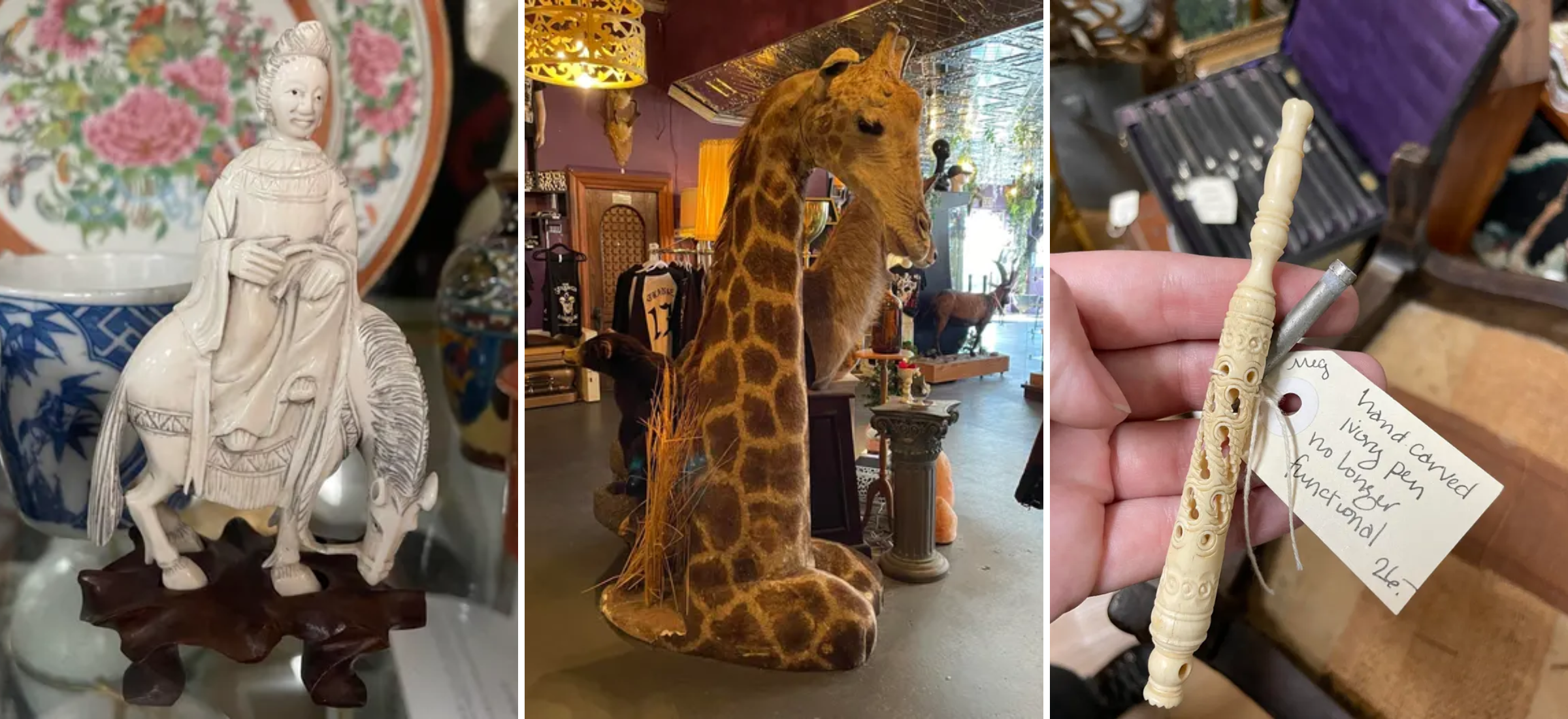Policy
New investigation shows the ivory trade is alive and well in PA
Following the investigation, state lawmakers are looking to ban the sale of ivory and similar animal products in the commonwealth.

Democratic state Rep. Leanne Krueger speaks about her legislation to prohibit the sale of ivory products in Pennsylvania. Justin Sweitzer
The Humane World for Animals – formerly known as the Humane Society of the United States – has released findings from an undercover investigation showing the ivory trade is alive and well in the commonwealth. The nonprofit identified close to 400 ivory items for sale at stores and online auctions across the state.
The investigation, which stretched across 27 counties, took place from January to April 2025 and examined items for sale at 31 retail stores and 32 online auctions. The organization said the ivory products originated from elephants, whales, walruses, hippos, warthogs and mammoths; investigators also found a taxidermied giraffe head and neck at a shop in Kingston.
The Humane World report on its investigation listed 383 pieces of suspected ivory, including jewelry, figurines, utensils and cutlery, cigarette holders and letter openers. The listed value of the items totaled close to $38,000, per the organization.

Given the findings of the report, Pennsylvania lawmakers say it’s time to ban the sale of such parts from at-risk and imperiled animals, and have introduced legislation to impose financial penalties on those who sell and buy ivory and similar animal products.
The bill, House Bill 994, passed the House Judiciary Committee this week with near-unanimous support, with only one lawmaker voting against it. It now awaits a vote from the state House of Representatives.
Proponents say the law would remove financial incentives for poachers and deal a blow to the illicit sale of ivory and parts from at-risk animals.
Democratic state Rep. Leanne Krueger, the prime sponsor of the bill, said she developed a strong desire to protect at-risk animals during her time studying abroad in South Africa. At a press conference in the state Capitol on Wednesday, Krueger said the bill would supplement federal laws and regulations aimed at protecting endangered and at-risk species.
The federal Endangered Species Act largely prohibits the importation and exportation of ivory products into the U.S., as well as the interstate sale of ivory, although it does have exceptions for antiques and products acquired before animals were classified as endangered. However, the law doesn’t restrict the sale of ivory products within states, and sales of ivory products acquired before animals were classified as endangered are allowed within state borders under the act.
She added that the bill would “combat wildlife poaching and trafficking by ensuring that Pennsylvania residents are not supporting the illegal wildlife trade by selling or buying parts of at-risk species of animals.”
Another sponsor of the legislation, Democratic state Rep. Melissa Shusterman, said the proposal would help eliminate markets for ivory if it’s ultimately signed into law.
“If there are no markets left for these products, there’s no incentive for poachers to continue to kill these beautiful, majestic animals,” Shusterman said.
The Humane World for Animals has conducted similar investigations in other states, including Connecticut and Florida. According to those investigations, the number of available ivory products in the commonwealth outnumbered those for sale in both states. The Pennsylvania investigation found 383 pieces of ivory for sale; investigators found 352 suspected pieces of ivory in Florida in 2023 and 169 suspected pieces of ivory in Connecticut in 2024, according to the organization.
The counties investigated by Humane World are primarily concentrated in the southeastern and western parts of the state. Whitney Teamus, the nonprofit’s senior investigations director, said that’s because ivory is more often found in antique and vintage shops, as opposed to big-box stores.
“We made a list and a map of a lot of different shops and picked the ones along the route, so there’s a stronger concentration in certain areas than others,” Teamus said.
HB 994 would include exceptions for federal and state government officials carrying out law enforcement obligations, the use of animal parts for musical instruments, and for educational and scientific purposes. The proposal states that “no person may purchase, sell, offer to sell or possess with intent to sell any item that the person knows or should know is a covered animal part or product.”
Prohibited items include products made from primates, whales, dolphins, elephants, giraffes, hippopotamuses, sharks, large cats, walruses, pandas and rhinoceroses, among other animals.
The bill would impose civil and financial penalties for those who violate the law, with violators facing fines of up to $20,000, depending on the severity of the offense.
